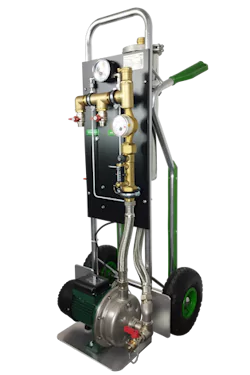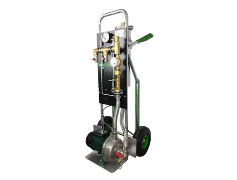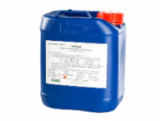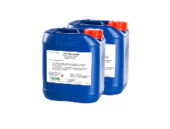Filtration and cleaning
Increase the efficiency of your heating system and prevent the formation of corrosion and limescale deposits. This reduces the risk of expensive repair and maintenance costs.

Why should heating water be filtered?
Filtering heating water is an important part of system maintenance and ensures the long-term efficiency and longevity of a heating system. Filtering removes unwanted components such as rust, limescale, sludge and magnetite from the heating system. This has several advantages:
- Prevention of corrosion: Dirt and oxygen promote corrosion processes that can damage pipes and heat exchangers.
- Protection of the heating system: Filters protect sensitive components such as pumps, valves and heat exchangers from deposits.
- Maintaining efficiency: Clean water improves heat transfer and reduces energy consumption.
- Extended service life: The system is less stressed and works more reliably for many years.
- Compliance with standards and manufacturer specifications: Many manufacturers specify purified or filtered heating water in order to secure warranty claims.
Classic filtration devices




Heaty Filtra Advanced № 2
The Heaty Filtra Advanced filtration device effectively cleans the heating water of dirt, solids and deposits during operation, thus protecting pumps and heat exchangers from clogging, improving heat transfer and reducing both material wear and the risk of germ formation.Heat Clean / Heat Clean S
Acidic cleaner for limescale residues and alkaline cleaner for sludge.Other products that are suitable for cleaning and filtration
Clean water and clean pipes increase the efficiency of the heating system and can lead to energy savings of up to 30%. If the heating water is clean, this ensures trouble-free operation and protects the system from corrosion caused by impurities such as sand and rust particles. Filtration also prevents clogging of heat exchangers, radiators and pipes and avoids malfunctions in the heating system, such as blockages in the circulation pumps.






How often do you have to change the heating water?
As a rule, heating water does not need to be changed regularly as long as the system has been filled correctly and no faults occur. However, it may be necessary to change the water if:
- the pH value is no longer within the target range,
- sludge or deposits have formed,
- corrosion is detected or
- conversions or repairs are pending.
Rule of thumb: Check every 5-10 years whether a change is necessary – especially with older systems or after major work.
Does a heating filter make sense?
Yes, a heating filter is very useful in many cases, especially for:
- existing systems with many old pipes,
- Suspicion of sludge or rust particles,
- regular hissing or gurgling in the radiators,
- frequent faults in the circulation pump or control technology.
A filter protects the system from deposits and wear, extends its service life and can increase efficiency.
Is a fine dust filter for radiators useful?
A fine dust filter directly on the radiator is not common and usually not necessary. Radiators do not generate fine dust – however, dust may be dispersed more quickly in the room air due to air circulation.
If you are looking for an allergy-friendly solution, an air purifier or a radiator filter that collects coarse dust is more suitable. These filter the dust that rises when the warm air circulates – this can improve the air quality in the room.
What is the optimum conductance value for heating water?
The optimum conductance depends on the heating system and the material used. General guide values (based on VDI 2035):
- For systems with low-salt operation, the value should be < 100 µS/cm
- Upper limit: max. 1000 µS/cm (permitted in special cases, e.g. for demineralization and corrosion inhibitors).
Too high a conductivity value can promote corrosion and deposits – the water should therefore be checked regularly.
When to filter heating water?
It makes sense to filter the heating water:
- after a water change to rule out any residues,
- in the event of recognizable problems such as cloudy water, noises or reduced heating capacity,
- if the system does not have a sludge separator or magnetite filter.
Modern heating systems benefit permanently from a permanently installed filter or separator system that works continuously.


